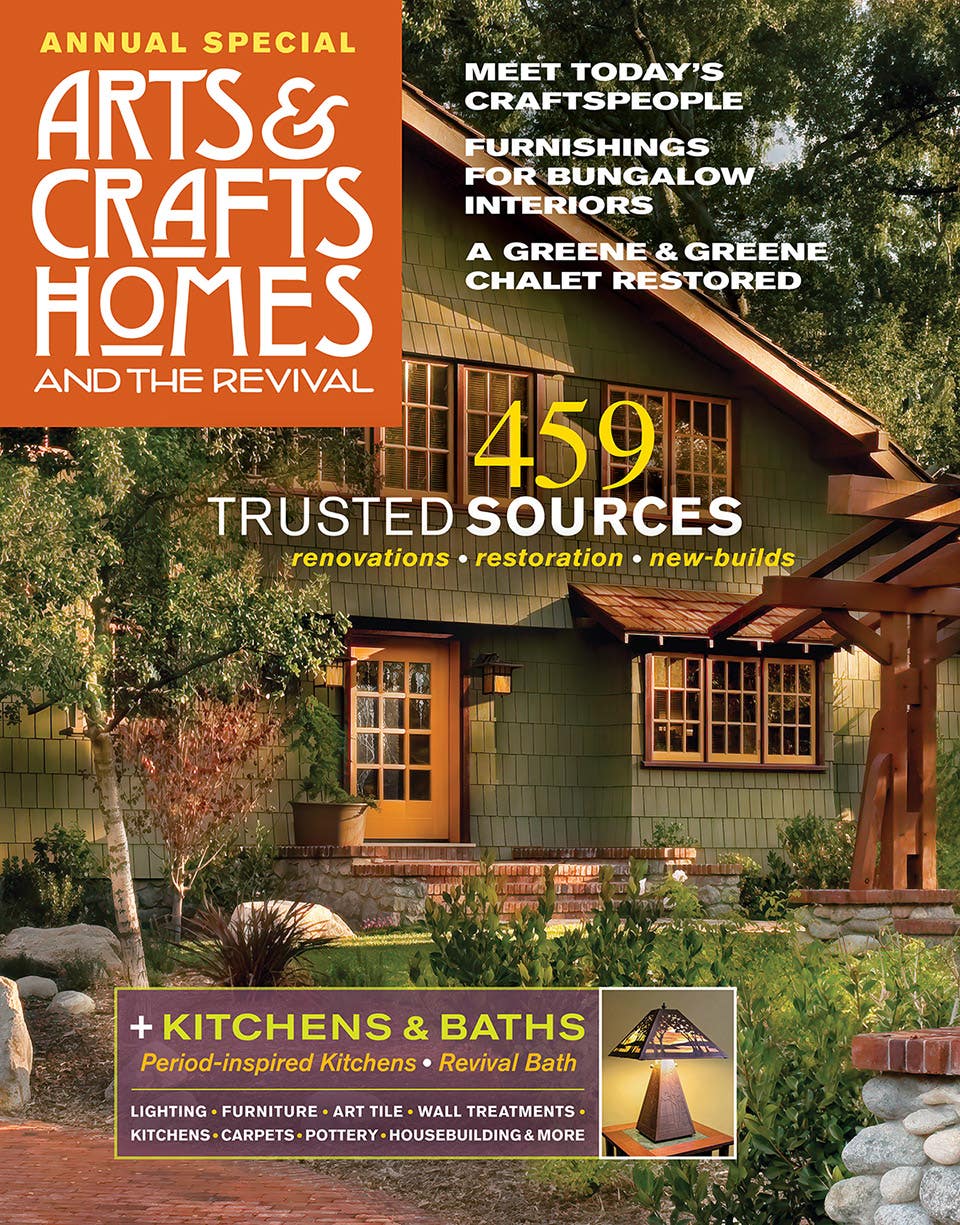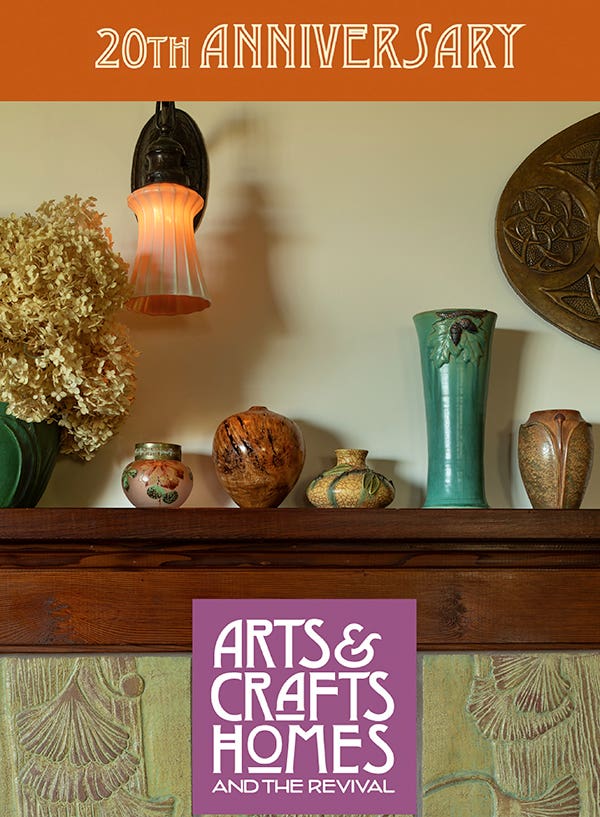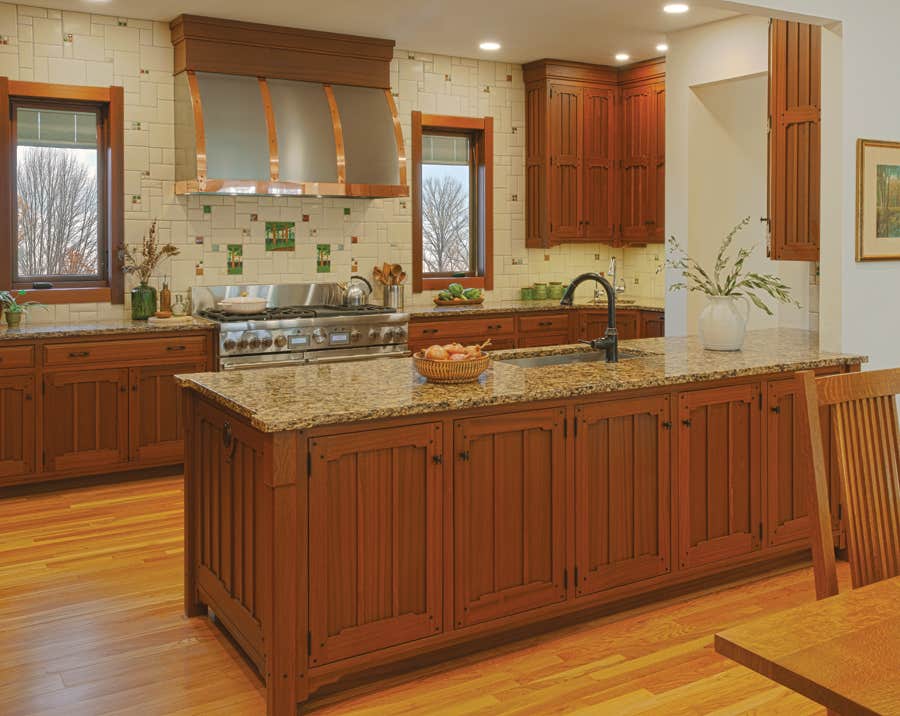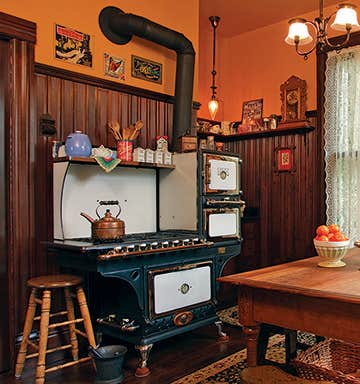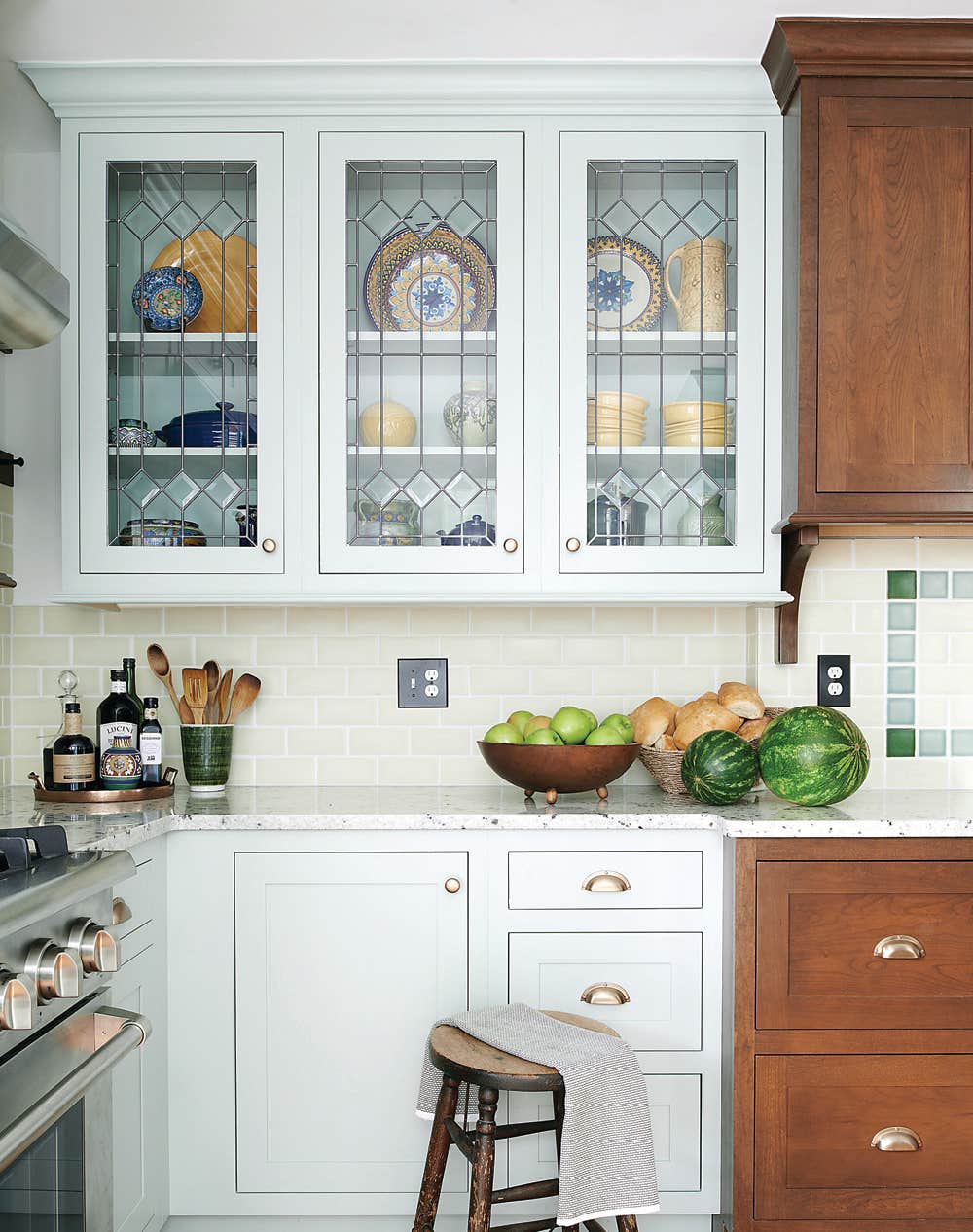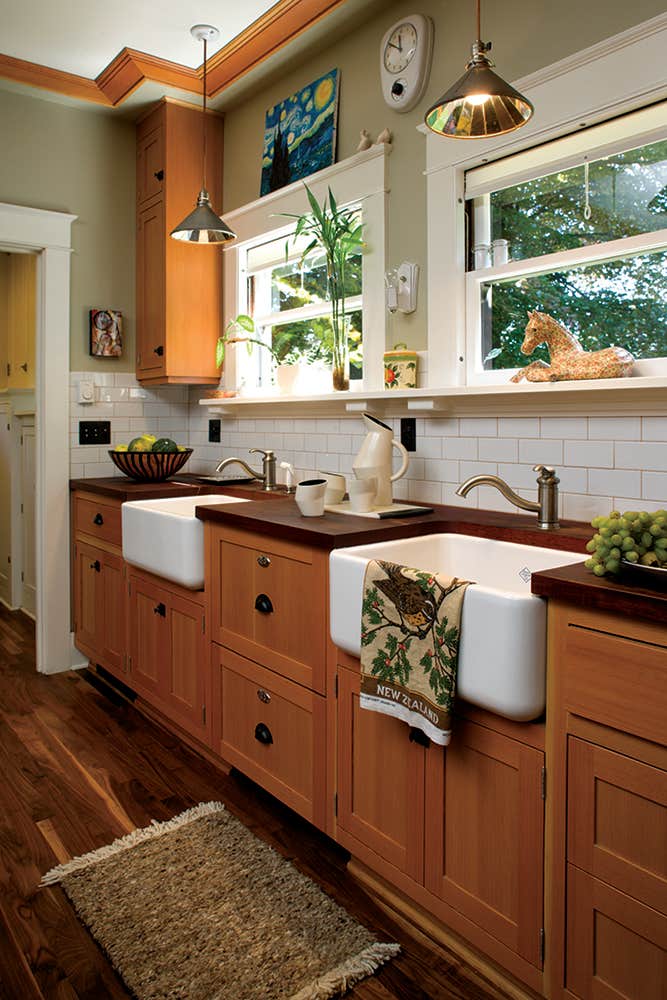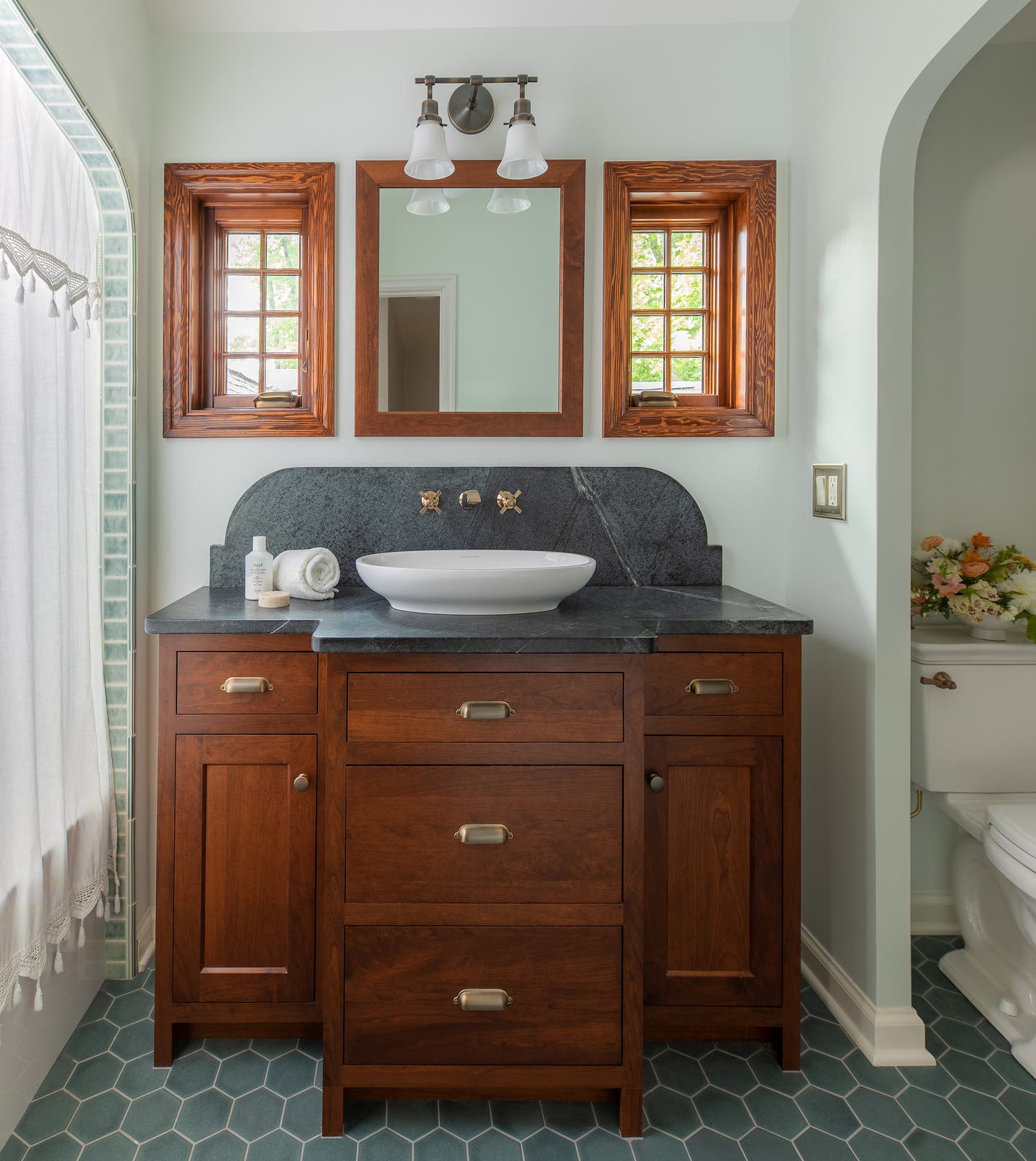A Kitchen as it Should Have Been
Simple, functional, and handsome, this renovated kitchen fits in beautifully because its design picks up details from the house.
“The trouble with this kitchen was that it didn’t go with the rest of the house,” says Suzie Van Cleave, an architect based in Milwaukee. Because there really was no such thing as an 'Arts & Crafts kitchen.' Indeed, most period kitchens were small, segregated, utilitarian spaces without fancy woodwork or decorative finishes.
The house in greater Milwaukee, a brick and stucco bungalow with pronounced gables and deep eaves, was built in 1913. While the interior features traditional Arts & Crafts elements, the kitchen, which had been installed in the 1970s, was not lovely, not very functional, and not Arts & Crafts. The homeowners asked architect Suzie Van Cleave to connect the kitchen to the dining room, to add mudroom functions including electronics storage, and to make a modern kitchen with a 36-inch range look as though it had been built in 1913.
Van Cleave began her career as an interior designer, but went back to school to get a master’s degree in architecture. “In my opinion, interior designers are often called in at the last minute, as an afterthought. That was not very satisfying. After all, it’s about buildings!”
To carry out her clients’ wishes, she took design cues from the existing architecture, including a built-in sideboard in the dining room and the oversized brackets under the roof’s deep overhangs. Van Cleave removed a partial wall dividing the kitchen and the dining area and, with the wall gone, there was space for a large island. Island details include Mission-style corners and furniture-like legs. The island range features a downdraft that vents through the basement to the outside.
In the bay-window area, she removed an old radiator cover and added an arched entryway, columns, window trim, and a curving bench seat. She installed new oak flooring and quartersawn white oak cabinets, carefully matching the new woodwork to what’s in the rest of the house. A bracket above the sink is a mini version of the hefty exterior brackets.
“Matching the new cabinet stain to the home’s original millwork was a challenge for our sub-contractor [Spectrum Interiors]—they were professional and meticulous, and spent time on six renditions to get it just right,” Van Cleave says. “A glaze gives it the richness.”
The original leaded-glass exterior door leads directly into the kitchen. So Van Cleave incorporated mudroom functions into the cupboard at the base of one of the new columns. The island has been outfitted with electronics storage and charging capability. The cupboard at the foot of the column opposite houses an appliance garage with a pull-up door. The owners bought classic 3" x 6" subway tiles, which looks convincingly historical with grey grout.
Regina Cole is an author and freelance writer for national and regional magazines on all aspects of architecture, interior design, landscape design, and yacht design. Cole specializes in historic architecture and period interiors.
Her work has appeared in a large number of publications, including the daily and Sunday Boston Globe, Interior Design, Old House Journal, Ocean Home, New Old House, Traditional Building, New England Home, Design New England, Maine Boats, Homes and Harbors, Forbes.com, and others.
She has been honored with a number of national writing prizes, including the Association for Garden Communicators Silver Award for a Magazine Article, the National Association of Real Estate Editors Silver Award for Best Residential Real Estate Story in a Daily Newspaper, and the National Association of Real Estate Editors Gold Award for the Best Architecture Story.

